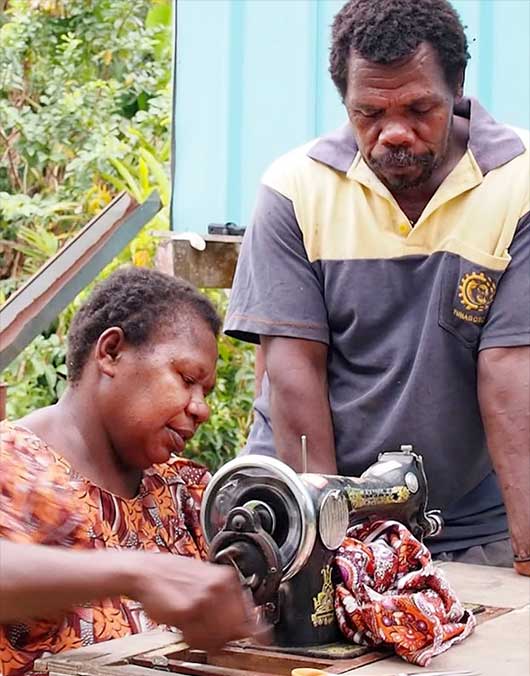Transformative Hope – August’s Story
26 February, 2020
August sits on the round wooden stool beside her mud brick house. Her four children are running around playing games nearby. She looks down at the bare earth ground, before looking up confidently. “I have my dreams for my children and what I want them to become in the future,” she smiles. “I want them to become teachers, nurses and leaders.”
August, now a mother of four, grew up in a poor village in East New Britain province in Papua New Guinea and only completed part of primary school. She did learn to read, but never completed her education.
August’s story mirrors that of so many women in PNG. The average Papua New Guinean only gets just over four years of schooling and earns an annual income of approximately $3,686.(1)
Gender inequality and unacceptable levels of violence also present significant barriers to the nation’s development. Men are almost twice as likely as women to hold a paid job, and men earn twice as much.(2) Amnesty International found that women in PNG hold “a very low status in society, placing them at a very high risk of abuse” and that violence against women is widespread.
“Gender inequality and discrimination in PNG are supported by customs including polygamy and bride price, which strengthen men’s belief that they own women,” Amnesty said.
But education is proving to be a powerful tool to build mutual respect between men and women, and it’s showing positive progress in reducing violence.
When the opportunity arose to improve her literacy skills through ADRA’s project, August was keen but shy. As well as receiving literacy training, August learnt how to sew. Before too long, she improved to the point where she sold some of the clothes she made. With the money she saved up she soon bought her own sewing machine. In turn, that machine has allowed her to produce and sell even more clothes. “I earn an income now to support my family, especially for school fees and other family needs.”
And the key? Education. “Literacy helps us to realise bigger and better things that will help change our lives,” August says. “It helps us learn to read and write and improve our lives to help our community learn.”
August feels more confident about her children’s future and her marriage is now thriving too.
“I have learnt to see what I can do as a mother and also my husband can see what his role is to help and support me.”
Her husband, Tade, speaks proudly of his wife. His eyes glow as he speaks softly. “I am happy for my wife,” he says. “She has contributed a lot of change to our church and community.”
And now, August can’t help but share her experience with others in the community. “Whatever I know, I must teach other mothers to learn what I have learnt.”
Her impact is likely to affect dozens of people in the village. Her leadership stands out. “I am teaching other mothers in the fellowship group to learn to sew and bake.”
When given the opportunity, women can help their communities and economies thrive. In fact, gender equality is an essential component in this happening.
“A gender equal world can be healthier, wealthier and more harmonious – so what’s not great about that?” – International Women’s Day, 2020.
1 – United Nations Human Development Index, 2018
2 – 2011 PNG Country Gender Assessment.
 1800
242 372
1800
242 372